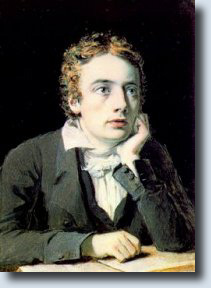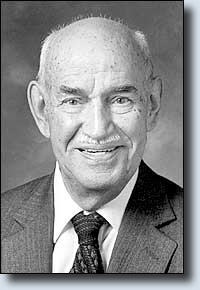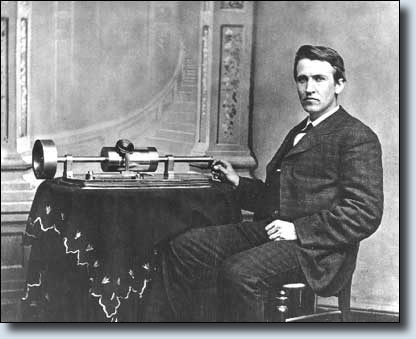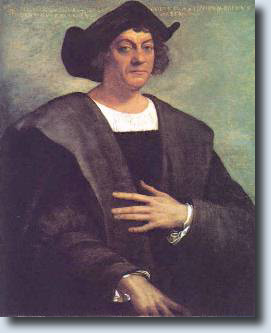1:38am: Ode on a Grecian Urn

miniature portrait of Keats by Joseph Severn, 1819
ODE ON A GRECIAN URN
1 Thou still unravish'd bride of quietness,
2 Thou foster-child of silence and slow time,
3 Sylvan historian, who canst thus express
4 A flowery tale more sweetly than our rhyme:
5 What leaf-fring'd legend haunts about thy shape
6 Of deities or mortals, or of both,
7 In Tempe or the dales of Arcady?
8 What men or gods are these? What maidens loth?
9 What mad pursuit? What struggle to escape?
10 What pipes and timbrels? What wild ecstasy?
11 Heard melodies are sweet, but those unheard
12 Are sweeter; therefore, ye soft pipes, play on;
13 Not to the sensual ear, but, more endear'd,
14 Pipe to the spirit ditties of no tone:
15 Fair youth, beneath the trees, thou canst not leave
16 Thy song, nor ever can those trees be bare;
17 Bold Lover, never, never canst thou kiss,
18 Though winning near the goal yet, do not grieve;
19 She cannot fade, though thou hast not thy bliss,
20 For ever wilt thou love, and she be fair!
21 Ah, happy, happy boughs! that cannot shed
22 Your leaves, nor ever bid the Spring adieu;
23 And, happy melodist, unwearied,
24 For ever piping songs for ever new;
25 More happy love! more happy, happy love!
26 For ever warm and still to be enjoy'd,
27 For ever panting, and for ever young;
28 All breathing human passion far above,
29 That leaves a heart high-sorrowful and cloy'd,
30 A burning forehead, and a parching tongue.
31 Who are these coming to the sacrifice?
32 To what green altar, O mysterious priest,
33 Lead'st thou that heifer lowing at the skies,
34 And all her silken flanks with garlands drest?
35 What little town by river or sea shore,
36 Or mountain-built with peaceful citadel,
37 Is emptied of this folk, this pious morn?
38 And, little town, thy streets for evermore
39 Will silent be; and not a soul to tell
40 Why thou art desolate, can e'er return.
41 O Attic shape! Fair attitude! with brede
42 Of marble men and maidens overwrought,
43 With forest branches and the trodden weed;
44 Thou, silent form, dost tease us out of thought
45 As doth eternity: Cold Pastoral!
46 When old age shall this generation waste,
47 Thou shalt remain, in midst of other woe
48 Than ours, a friend to man, to whom thou say'st,
49 "Beauty is truth, truth beauty,--that is all
50 Ye know on earth, and all ye need to know."
"John Keats was born in Finsbury Pavement near London on October 31st, 1795. The first son of a stable-keeper, he had a sister and three brothers, one of whom died in infancy. When John was eight years old, his father was killed in an accident. In the same year his mother married again, but little later separated from her husband and took her family to live with her mother. John attended a good school where he became well acquainted with ancient and contemporary literature. In 1810 his mother died of consumption, leaving the children to their grandmother. The old lady put them under the care of two guardians, to whom she made over a respectable amount of money for the benifit of the orphans. Under the authority of the guardians, he was taken from school to an be apprentice to a surgeon. In 1814, before completion of his apprenticeship, John left his master after a quarrel, becoming a hospital student in London. Under the guidance of his friend Cowden Clarke he devoted himself increasingly to literature. In 1814 Keats finally sacrificed his medical ambitions to a literary life.
He soon got acquainted with celebrated artists of his time, like Leigh Hunt, Percy B. Shelley and Benjamin Robert Haydon. In May 1816, Hunt helped him publish his first poem in a magazine. A year later Keats published about thirty poems and sonnets printed in the volume "Poems".
"After receiving scarce, negative feedback, Keats travelled to the Isle of Wight on his own in spring of 1817. In the late summer he went to Oxford together with a newly-made friend, Benjamin Bailey. In the following winter, George Keats married and emigrated to America, leaving the consumptuous brother Tom to the John's care. Apart from helping Tom against consumption, Keats worked on his poem "Endymion". Just before its publication, he went on a hiking tour to Scotland and Ireland with his friend Charles Brown. First signs of his own fatal disease forced him to return prematurely, where he found his brother seriously ill and his poem harshly critisized. In December 1818 Tom Keats died. John moved to Hampstead Heath, were he lived in the house of Charles Brown. While in Scotland with Keats, Brown had lent his house to a Mrs Brawne and her sixteen-year-old daughter Fanny. Since the ladies where still living in London, Keats soon made their acquaintance and fell in love with the beautiful, fashionable girl. Absorbed in love and poetry, he exhausted himself mentally, and in autumn of 1819, he tried to gain some distance to literature through an ordinary occupation.
"An unmistakeable sign of consumption in February 1820 however broke all his plans for the future, marking the beginning of what he called his "postmumous life". He could not enjoy the positive resonance on the publication of the volume "Lamia, Isabella &c.", including his most celebrated odes. In the late summer of 1820, Keats was ordered by his doctors to avoid the English winter and move to Italy. His friend Joseph Severn accompanied him south - first to Naples, and then to Rome. His health improved momentarily, only to collapse finally. Keats died in Rome on the 23rd of February, 1821. He was buried on the Protestant Cemetary, near the grave of Caius Cestius. On his desire, the following lines were engraved on his tombstone: "Here lies one whose name was writ in water." (From www.John-Keats.com)
4pm:"O.K." et alia

Allen Walker Read in 1988
(From The New York Times)
Allen Read, the Expert of 'O.K.,' Dies at 96
By DOUGLAS MARTIN
Allen Walker Read, a playful prospector of the American tongue who hunted down the source of words like Dixie and Podunk, phrases like the almighty dollar and, most famous of all, those ubiquitous initials, O.K., died on Wednesday at his home in Manhattan. He was 96.
A longtime English professor at Columbia University , he demolished a host of theories about the origin of O.K., an Americanism adopted by virtually every language and one of the first words spoken on the Moon. The original source was not a misspelling by Andrew Jackson or a Choctaw Indian word or a superior brand of Army biscuit or a variety of other possibilities.
Rather, its first known published appearance with its current meaning came in The Boston Morning Post on March 23, 1839: "o.k. all correct." It appeared at a time when initials, preferably of misspelled words, like "oll korrect," were the fad. "K.Y." meant "no use" ("know yuse"), but that did not catch on.
Mr. Read solved the "O.K." mystery in a series of articles in American Speech in 1963 and 1964, causing "much gnashing of teeth by other etymologists, who had themselves lusted for the laurels of `O.K.,' " according to an article by Michelle Stacey in The New Yorker in 1989.
But Mr. Read did not appreciate having "O.K." overshadow the hundreds of other etymologies he divined. He loved showing how words travel curlicue courses, the mapping of which sheds light on how people think and live. In tracing how the Rocky Mountains came to be called the Rockies, he learned that in 1804 they were the Northern Andes.
His achievements included contributions and commentaries in Funk & Wagnall's, Random House and other dictionaries; being an editor of the Dictionary of American English; and writing the entry on "dictionary" for the Encyclopaedia Britannica.
He wrote scores of research papers and monographs, and his several books included "Milestones in the History of English in America," a collection of essays published this year by the American Dialect Society.
He was a professor of English at Columbia from 1945 to 1974 and was head of many linguistic organizations, including the International Linguistic Association.
Mr. Read saw words as playthings and told The New Yorker that "jubilance is an explanation for a lot of the things that happen in language." He loved and studied slang, euphemisms, pig Latin, double talk, adult baby talk and graffiti. Exuberant, obviously impromptu words like blustrification and discombobulate delighted him.
He once compiled names that natives of Connecticut have called themselves, including Connecticotians, Connecticutensians and Connecticuties, the last reserved for pretty girls.
In 1928, on a sightseeing trip through the western United States, he collected graffiti from public restrooms and privately printed the results in 1935 as "Lexical Evidence of Epigraphy in Western North America: A Glossarial Study of the Low Element in the English Vocabulary."
In the book, he wrote, "That anyone should pass up the well-established colloquial words of the language and have recourse to the Latin `defecate,' `urinate,' and `have sexual intercourse,' is indicative of grave mental health."
He was born in Winnebago, Minn., on June 2, 1906. His father, who taught all the sciences at Iowa State Teachers College, now the University of Northern Iowa, in Cedar Falls, Iowa, encouraged him to pursue an academic career.
He graduated from his father's college at 19 and at 20 earned a master's degree from the University of Iowa, writing his thesis on Iowa place names. He won a Rhodes scholarship to Oxford. He taught at the University of Missouri and the University of Chicago before going to Columbia.
In 1926, while teaching at Missouri, he hitchhiked to Estherville, in western Iowa, to search out the origin of the word blizzard. It had originally meant sharp blow or volley, as in a blizzard of shot from a gun. He learned that a man called Lightnin' Ellis had first used the word for a snowstorm in 1870, in the local paper. Within 10 years, it had spread throughout the Midwest.
Mr. Read loved such hunts. He traced Dixie to a minstrel show in New York City in 1850 and Podunk to an Indian name meaning "where there is a sinking," or a swamp. He found that Washington Irving laid claim to the first use of "the almighty dollar," though a Philadelphia newspaper used it around the same time.
H. L. Mencken, whose writing on the American language inspired Mr. Read, wrote about the Podunk discovery in The New Yorker in 1948.
"Allen Walker Read," he wrote, "probably knows more about early Americanisms than anyone else on earth."
In 1953, Mr. Read married Charlotte Schuchardt, the director of the Institute of General Semantics, an educational center and publisher in Brooklyn. General semantics is a branch of linguistics founded by Alfred Korzybski in the 1930's that theorized that words are abstractions that draw attention away from the particularity of the things they represent.
Mrs. Read died this July, and Mr. Read has no survivors, Robert R. Potter, a friend, said.
Mr. Read did not finish the Dictionary of Briticisms he had worked on since 1938, when he won a Guggenheim fellowship to pursue the project. He believed that there had been many works on how British English continued to influence American English after the Revolution, but none that did the reverse.
In an article in The American Oxonian in 1938, Mr. Read wrote, "It is to be hoped that the work will abound with extracts of a racy, human quality."
2pm: Lights, Music, Action!

Thomas Alva Edison
OCT. 18, 1931: EDISON DIES
Thomas Alva Edison, one of the most prolific inventors in history, dies in West Orange, New Jersey, at the age of 84.
Born in Milan, Ohio, in 1847, Edison received little formal schooling, which was customary for most Americans at the time. He developed serious hearing problems at an early age, and this disability provided the motivation for many of his inventions. At age 16, he found work as a telegraph operator and soon was devoting much of his energy and natural ingenuity toward improving the telegraph system itself. By 1869, he was pursuing invention full-time and in 1876 moved into a laboratory and machine shop in Menlo Park, New Jersey.
Edison's experiments were guided by his remarkable intuition, but he also took care to employ assistants who provided the mathematical and technical expertise he lacked. At Menlo Park, Edison continued his work on the telegraph, and in 1877 he stumbled on one of his great inventions--the phonograph--while working on a way to record telephone communication. Public demonstrations of the phonograph made the Yankee inventor world famous, and he was dubbed the "Wizard of Menlo Park."
Although the discovery of a way to record and play back sound ensured him a place in the annals of history, it was just the first of several Edison creations that would transform late 19th-century life. Among other notable inventions, Edison and his assistants developed the first practical incandescent lightbulb in 1879, and a forerunner of the movie camera and projector in the late 1880s. In 1887, he opened the world's first industrial research laboratory at West Orange, where he employed dozens of workers to systematically investigate a given subject.
Perhaps his greatest contribution to the modern industrial world came from his work in electricity. He developed a complete electrical distribution system for light and power, set up the world's first power plant in New York City, and invented the alkaline battery, the first electric railroad, and a host of other inventions that laid the basis for the modern electric world. He continued to work into his 80s and acquired 1,093 patents in his lifetime. He died at his home in New Jersey on October 18, 1931. (From The History Channel: This Day In History)
10:44am: Have You Seen Cathay?

Sebastiano del Piombo painted this portrait
thirteen years after Columbus's death
Click For Columbus Navigation Website
OCTOBER 12, 1492: COLUMBUS REACHES THE NEW WORLD
After sailing across the Atlantic Ocean, Italian explorer Christopher Columbus sights a Bahamian island, believing he has reached East Asia. His expedition went ashore the same day and claimed the land for Isabella and Ferdinand of Spain, who sponsored his attempt to find a western ocean route to China, India, and the fabled gold and spice islands of Asia.
Columbus was born in Genoa, Italy, in 1451. Little is known of his early life, but he worked as a seaman and then a maritime entrepreneur. He became obsessed with the possibility of pioneering a western sea route to Cathay (China), India, and the gold and spice islands of Asia. At the time, Europeans knew no direct sea route to southern Asia, and the route via Egypt and the Red Sea was closed to Europeans by the Ottoman Empire, as were many land routes. Contrary to popular legend, educated Europeans of Columbus' day did believe that the world was round, as argued by St. Isidore in the seventh century. However, Columbus, and most others, underestimated the world's size, calculating that East Asia must lie approximately where North America sits on the globe (they did not yet know that the Pacific Ocean existed).
With only the Atlantic Ocean, he thought, lying between Europe and the riches of the East Indies, Columbus met with King John II of Portugal and tried to persuade him to back his "Enterprise of the Indies," as he called his plan. He was rebuffed and went to Spain, where he was also rejected at least twice by King Ferdinand and Queen Isabella. However, after the Spanish conquest of the Moorish kingdom of Granada in January 1492, the Spanish monarchs, flush with victory, agreed to support his voyage.
On August 3, 1492, Columbus set sail from Palos, Spain, with three small ships, the Santa María, the Pinta, and the Niña. On October 12, the expedition reached land, probably Watling Island in the Bahamas. Later that month, Columbus sighted Cuba, which he thought was mainland China, and in December the expedition landed on Hispaniola, which Columbus thought might be Japan. He established a small colony there with 39 of his men. The explorer returned to Spain with gold, spices, and "Indian" captives in March 1493 and was received with the highest honors by the Spanish court. He was the first European to explore the Americas since the Vikings set up colonies in Greenland and Newfoundland in the 10th century.
During his lifetime, Columbus led a total of four expeditions to the New World, discovering various Caribbean islands, the Gulf of Mexico, and the South and Central American mainlands, but he never accomplished his original goal--a western ocean route to the great cities of Asia. Columbus died in Spain in 1506 without realizing the great scope of what he did achieve: He had discovered for Europe the New World, whose riches over the next century would help make Spain the wealthiest and most powerful nation on earth. (From The History Channel)
'Round Midnite: John Lennon's Birthday

Those of you who know me, know that John Lennon was one of my personal heroes. The night he was shot I hopped in a cab and rode across the Park to the Dakota. I got there before most of the rest of the throng arrived, and tied my bead necklace to the fence, one of the first mementos on what became a memorial wall. I spent the all-night vigil at the front of the barricades (I am readily visible in the archived news footage they show every few years on the anniversary of his death). I sang "Give Peace A Chance" from the time we learned he'd died until the first newspapers arrived on the scene, announcing in bold headlines what we already knew. I somehow anticipated the cheer that went up from the crowd when the papers were held aloft, and still remember the sickening feeling I experienced, hearing these people cheer. Of course, they were not cheering that Lennon was dead, it was a nervous laughter of a cheer, acknowledging that the news media had taken our pictures and put them on the front page with the headlines. Still, it sickened me. I spent the entire night there, and left at 7am, came back to my apartment and wrote a song for John Lennon, called "The Way Things Go." It was a harrowing night and morning, one I will never forget.
Here is a tribute from "Those Were The Days:"
"John Winston Lennon -- composer; musician; one fourth of the famed rock group, The Beatles; husband of Yoko Ono; father of Julian and Sean -- was born on this day in 1940 in Liverpool, England. Its hard to imagine what the world would be like without his influence on music.
There is hardly a soul anywhere in the world who isnt familiar with the songs he wrote as half of the team of Lennon and McCartney. When The Beatles were no longer touring, John Lennon collaborated with Yoko Ono in avant- garde works. He then began to express his political views through his music, and in some cases, his actions. Live Peace in Toronto was his first gesture for world peace. And, he returned the coveted Order of the British Empire award (the MBE) to protest British involvement in the Nigerian Civil War. He continued his quest for peace in Give Peace a Chance and with his bed-in for peace at the Amsterdam Hilton following his marriage to Yoko Ono.
His music traced his lifestyles, his views, his childhood, his pain, and jubilation: Cold Turkey, Instant Karma, Mother, Working Class Hero, Jealous Guy, Crippled Inside and How Do You Sleep. Imagine, from the LP of the same title, became his best known work. It also made a statement, paying homage to nonmaterialism. Then there was the LP, Sometime in New York City, filled with anti-establishment verses. Mind Games and Walls and Bridges followed.
Whatever Gets You Through the Night was cause for celebration. It was his first solo #1 hit in the U.S. Lennon then recorded an LP with Yoko, each alternating songs on Double Fantasy. He celebrated his son Sean with Beautiful Boy, his wife with Woman and his new life with both in Just like Starting Over.
He had barely begun to start over when, on December 8, 1980, John Lennon was shot to death outside his New York City apartment building.
Its hard to Imagine ..."
(From 440 International, Those Were The Days)
3:34pm: A Stone, A Leaf, A Door

Thomas Wolfe
Here is the epigram for the opening chapter of Thomas Wolfe's Look Homeward, Angel:
"...a stone, a leaf, an unfound door; of a stone, a leaf, a door. And of all the forgotten faces.
Naked and alone we came into exile. In her dark womb we did not know our mother's face; from the prison of her flesh have we come into the unspeakable and incommunicable prison of this earth.
Which of us has known his brother? Which of us has looked into his father's heart? Which of us has not remained forever prison-pent? Which of us is not forever a stranger and alone?
O waste of loss, in the hot mazes, lost, among bright stars on this most weary unbright cinder, lost! Remembering speechlessly we seek the great forgotten language, the lost lane-end into heaven, a stone, a leaf, an unfound door. Where? When?
O lost, and by the wind grieved, ghost, come back again."
Go buy and book and read it.